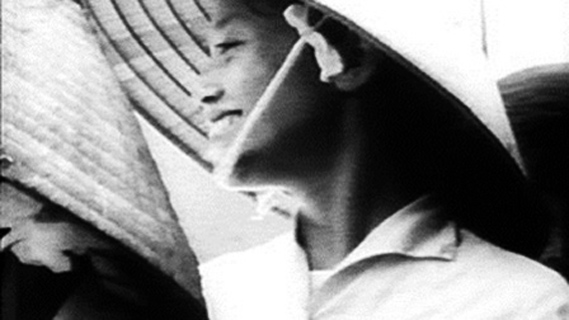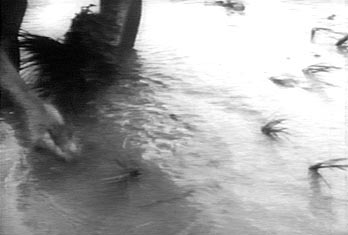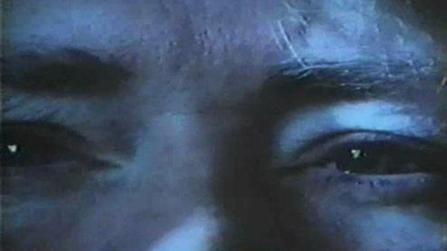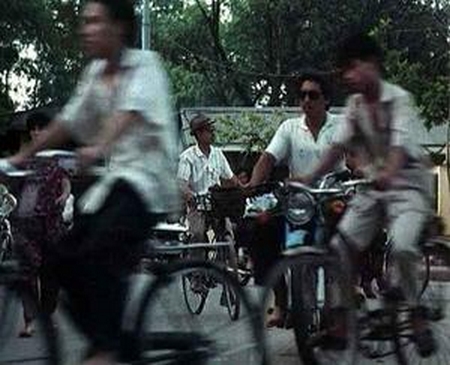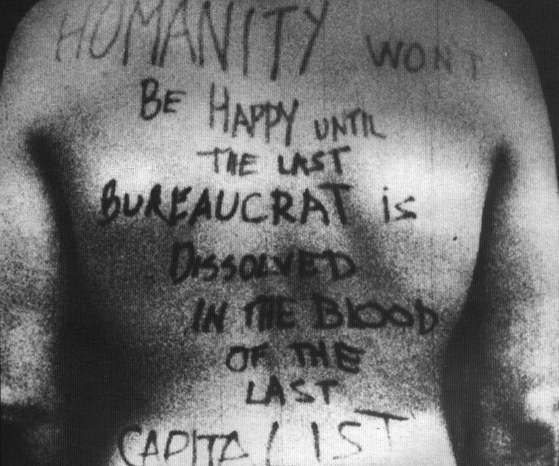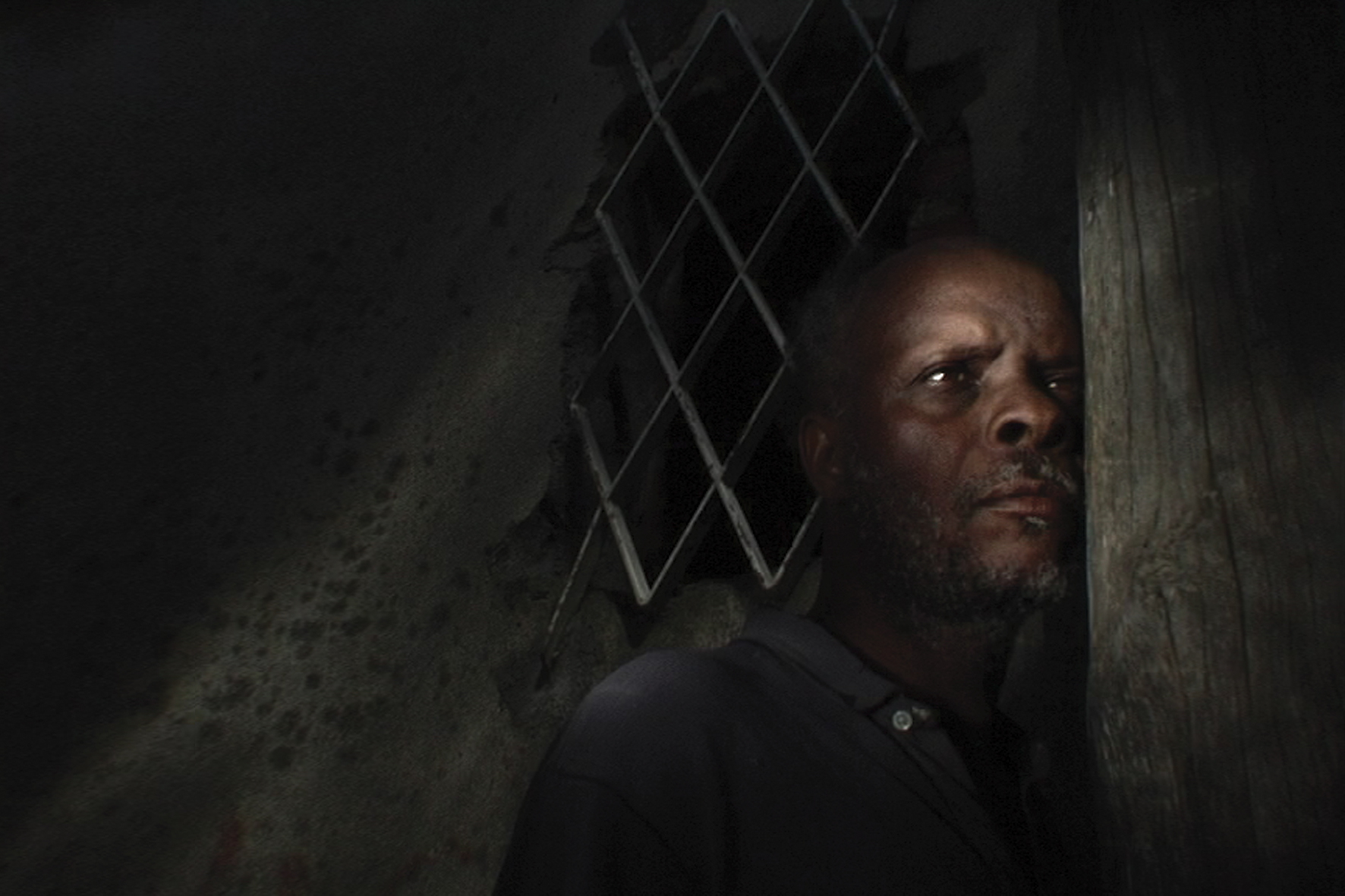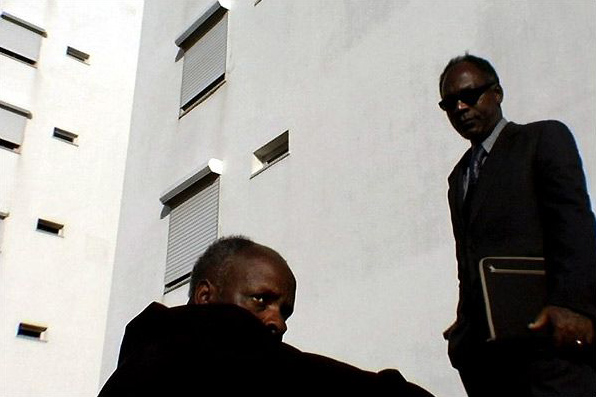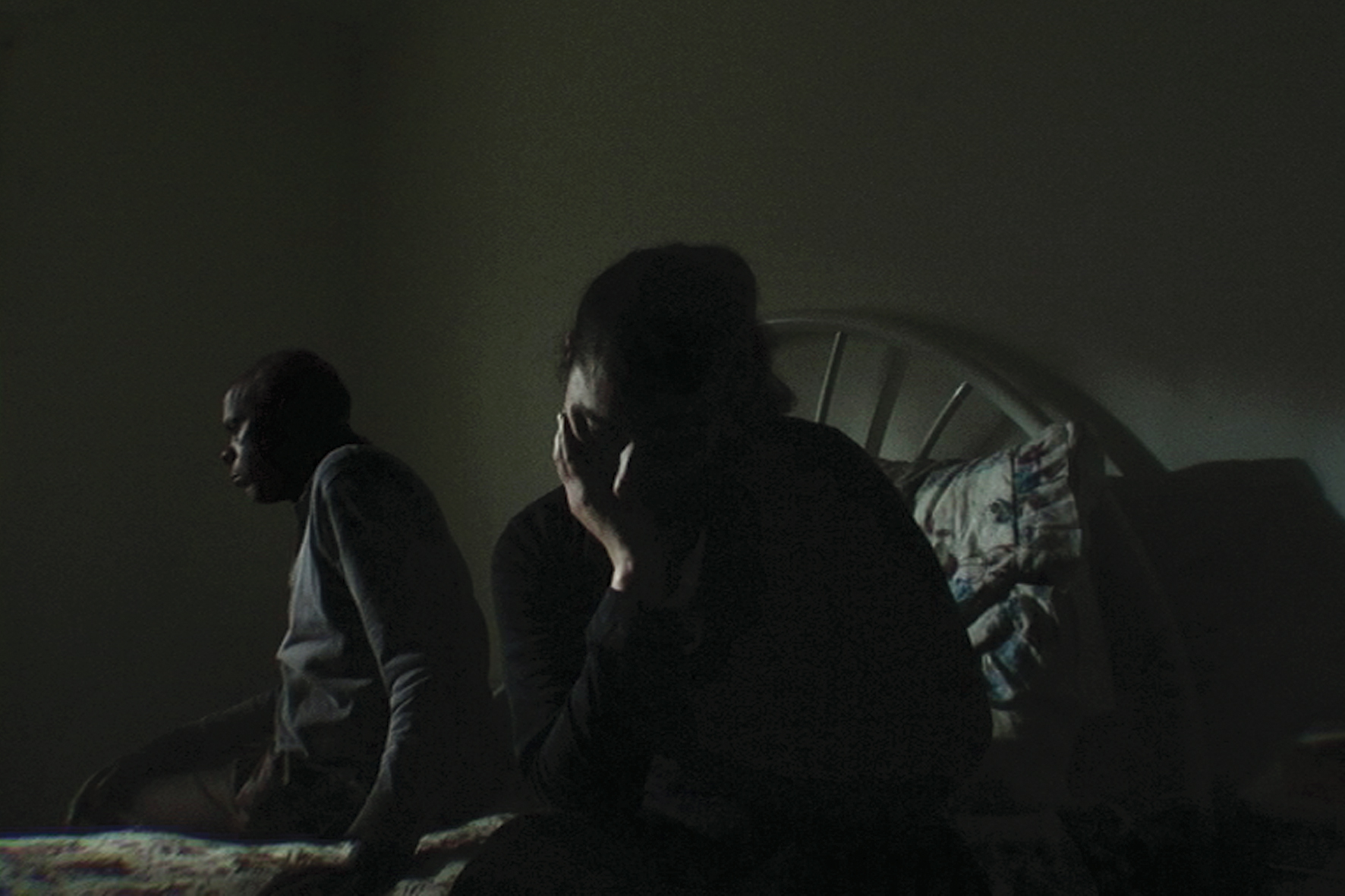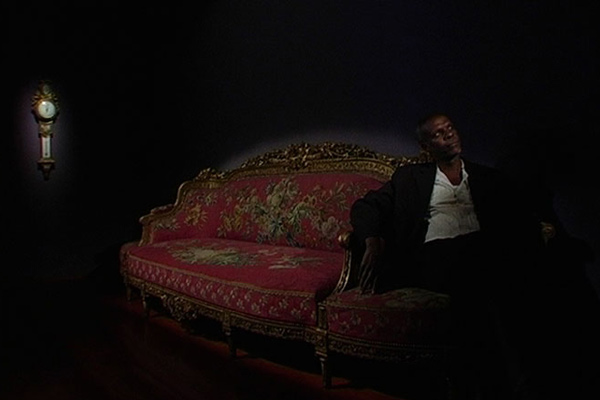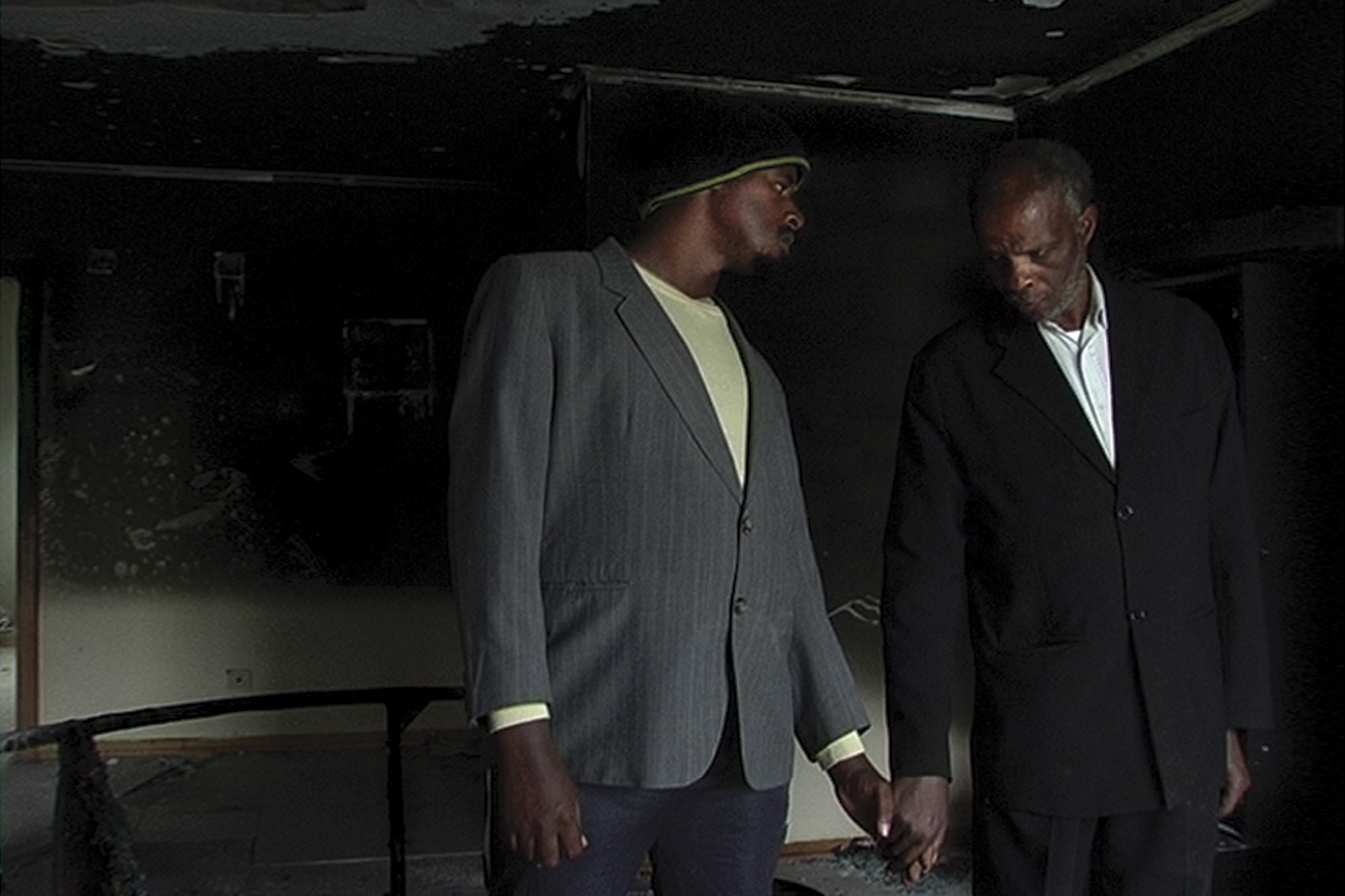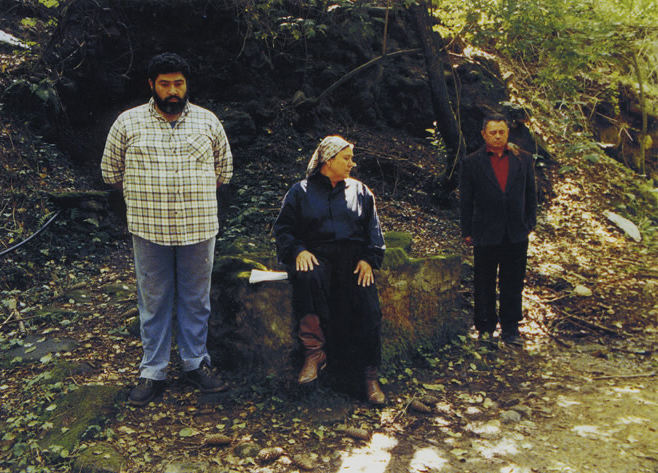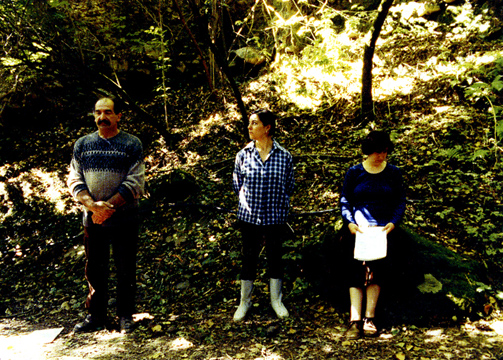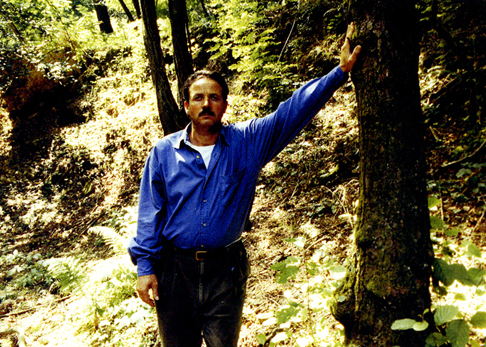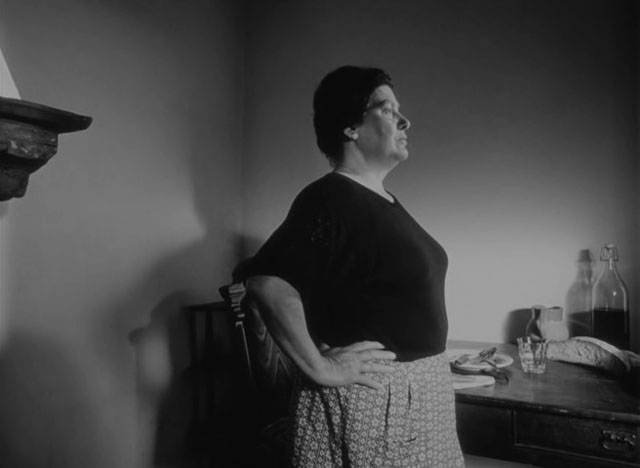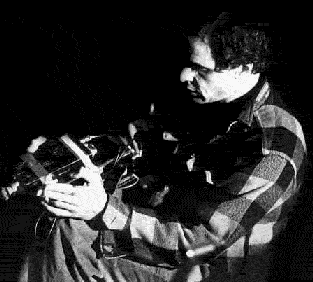
By Robert Kramer
Written in July 1997. French version was published in ‘Trajets : à travers le cinéma de Robert Kramer’, edited by Vincent Vatrican & Cédric Venail (Institut de l’image, 2001). Kramer’s “Vietnam Trilogy”, consisting of ‘People’s war’ (1969), ‘Point de départ’ (1993), and ‘SayKomSa’ (1998) will be shown at KASKcinema on February 21, as part of the “Figures of Dissent” series.
“After the events of the previous days, he already felt that in the new landscape around them humanitarian considerations were becoming irrelevant.
‘Doctor?’
‘Mr. Jordan, I daren’t be honest with myself. Most known motives are so suspect these days that I doubt whether the hidden ones are any better. All the same, I’ll try to get you to the beach.”
(The Drought, J. G. Ballard)
I know that it is about me and my movies, and I gave the editors, Vincent and Cedric, a list of friends and others who might eventually participate, but as I write here I haven’t read what’s in this book. What I hope is that there is material that describes the interchange between someone, one other person, one mind/body, and one of the movies. Something that happens in a specific time and place, to someone, and in front of a screen. An event that is singular, that, like a conversation, does happen in both directions, and whose existence is confirmed by the traces it leaves after. I dream of this relationship. I try as best I can to make it happen: that the movie slips into someone, as secretive and unexpected as the arrival of love or desire, or sometimes like a knife. That the movie infiltrates around the obstacles and expectations that increasingly dominate our internal landscape, that diffusing outward the movie escapes the given compartments that organize our experience, and squeeze that event into old and familiar (and therefore harmless) grooves. A movie, entertainment, a documentary, art, culture, militant: the names weight the thing down so that it can’t fly anymore. This is how we die.
Or so I was led to believe. I was led to believe that it was less interesting to tell someone something, than to create a space where the experience of it could be shared. Share our confusions and our curiosity, for example, make certain discoveries together. At any rate, I didn’t feel like I knew too many answers (the things you know for sure are so known you doubt they could have much value to anyone), so turning the questions around and around, watching their contures change with the light and time and distance, with the changing moods of looking, or the history around them, I was forced to accept that, having no message as such, I only had something to keep trying to live out. And that this was both a process and a method. I mean, there was an intention to try to live a certain way, and to let that lived life define the directions of the adventure. In a sense, I was just the cartographer of the expedition, I was only there to map the geography of the lands we crossed and tell the tale of the trip. I think of the lost chronicler of Hesse’s “Journey To The East,” or as Bichet, the painter-cameraman from Pontarlier in the Doubs said the other day, “you’re a tramp, boy, just a tramp!”
Which, when we pull back again to movies, means that they were always at least two things simultaneously, these movies. They are a way to go out there into that new geography each time, they are a means to leave, to break off, to escape, to change the air as surely as Ishmael knows to do it when he feels himself going stale and the violence rising in him, and he goes down to the sea, and the whaling ship that will take him off to Moby Dick. Movies are the means by which one packs one’s bag and walks away from everything that the room and habit and society and family represent. And then the movies are also like signposts, markers, milestones. They indicate that a life passed by there, that this is the sense that could be made of the experience, that the movie is a measure of the profitability of the experience, its intrinsic usefulness, and that in principle there is something here that is worth sharing together. From this point of view the movies are always two-things-in-one, and surely more.
I’m going to be 58.
I never thought I’d get to this age.
It’s true that at that time (I’m talking about the USA in the 50’s, but it could have been any time in our national history because that is our story and our contribution) there was an atmosphere of dying young, of “no way out” and “born to lose,” and many friends or heros I had did die young, trying to find a way out, pushing themselves too far, trying to change the world. But what I felt was not only about a menacing world and the real consequences of living dangerously. It was also a reflection of how few examples I had of anyone who had grown older well. I couldn’t visualize myself in a future because the world, and my elders, were so much what I did not want for myself. If that was what was going to happen to you, why do it? And oddly enough, that’s what the elders seemed to be saying all the time. They said, there is no way to resist the pressure and control of the design. This is life. There is no way to avoid being like us. Whatever way you jerk your life around you’re going to get worn down. You can’t avoid growing up, but beside being able to drink in the bars and drive a car, there’s nothing much to say for it. It’s a question of compromsing and making your peace with the deals. They seemed to say that, and much more that was too dark and soiled and disappointed to say. It was in their expressions and their gestures, in the unexcited way they were with eachother, in the very distance they took from the roles they were playing, or how old they seemed when they were not really so old. Death was in the air. Partly because it was a doctor’s house, yes, of course, but the talk of sickness and death and dying was more like a dirge for what happens to a life, and in the young boy who was always and dutifully listening, it surely raised a doubt as to whether there were not some things that were worse than death.
I’m talking about memories of 45 years ago.
I’ve tried, but they always come out the same.
I think of coins minted invariably from the same mold, legal tender, money of the realm: that’s how I paid my way and purchased my distance. Younder stands your orphan with his gun, crying like a fire in the sun….
We were standing there: high on a slope of industrial rubble, a slag heap of smoking metal, of bombed out ruins and rusting debris. It’s the 1950’s creeping into the 60’s, it’s the wasteland moving into the war zone, and behind us, right on our heels, there’s a curtain. Curtains of artifice and lies! Eisenhower theatre curtain, iron curtain, or their new media curtain with its unprecedented cool blue technological glow: it is their curtains thrown over the obscene mess they have made of the 20th century! And what is there of value behind that curtain? What can we make use of in all that history and culture? What can we scavage for ourselves there, or learn about finding a way out of here? Some people continue to look back, searching for scraps and bones and pieces of gristle, while the more radical ones say “there is nothing behind us anymore, there is no one to listen to and nothing to live up to. It’s up to us to figure out how to live.” The past doesn’t go away, it isn’t even past, but you could feel that used and misused experience coagulating, accumulating into a black hole of fabulous density: an invisible gravity that now sucks at our energy and drags us back into their known and predicted defeats.
The actual physical sensation that came from this experience of the weight of the past was a weariness unto death. It was not so much boredom as a frightening absence of energy. Something (perhaps history itself) had been used up, squandered, and the slang that says it best is wasted. Tired stoned or dead, you’re wasted. Wasted opportunities, like garbage. There were times when I did not think I could lift my hand off the surface of the desk. Those were my symptoms anyway, while others experienced the widest range of psychological disorders, including syndroms of doubt and disgust, self-hate, self-defeat, self-mutilation, suicide, etc., and a constant scrambling for the reasons why.
It is difficult to distinguish between the way one is formed by the life around one, and the form one gives to things just by thinking about them with the specific means one has at ones disposal. It is a vicious circle and surely no one escapes from their subjectivity. In the practise of a life, that subjectivity is what one has to work with. That is to say, what I saw is that I lived in a society that told itself alot of lies and lived by quite a few fictions. Like most young people this young nation was haunted by the imminence of death, obsessed by a sense of vulnerability, of fragility and transcience. Our power and position were precarious: everybody out there wanted to take away our new toys! The insecurity of the situation had each of us still trying to puff ourselves up to go out alone into that wildness of untamed land that we were forever claiming and conquering with our guns, as if the ritual of our national founding could never be allowed to end. This young nation, this USA, was a paper-thin veneer of history, a transparent membrane stretched over this vast continent of land stolen so recently from those who had lived there alone for tens of thousands of years. That’s how it looked.
The Beat poets had started laying down that other view of America, the underside and secret history, that I am describing here another way and from another class, and Dylan (who has sung most of what I ever wanted to say) was coming soon. And jazz. We were listening to jazz like you listen to a clandestine Radio Rebellion, and blues, and now rhythm’n blues. The music was, but even more pervasive and troubling was the very existence of black people in this closed and stuffy and thoroughly white banquet hall of the 50’s. They were kept segregated. They were kept apart, other. They were hasselled and harrassed, but stayed unknowable, cool in the face of a white power that had only adapted the habits of slave holding to the wage system. Because black people were kept apart from this USA, because they couldn’t buy in, perhaps they had been less poisoned. That was the instinctive flash. Perhaps they had remained more human. No one knew what the limits of their energy was, or where it might lead us, but the Black Belt South was there, and the ghettos were there in all the cities and towns of our wanderings, like immense and unmapped territories.
Sure, there were illusions here. But it was the instinctive start of building another view of things. And for this schoolboy who went down through the ghetto streets every day on the way to his white private school, who fought with black kids just because the lines got drawn first around race, and only later around class or religion: for that kid, the ghettos said what needed to be learned about the meaning of white skin, and the senseless privileges it bestowed upon me and all the other settlers, recently arrived on these shores or not.
Like all settler nations the States was obsessed by its identity because this identity is so illusive, intangible, and finally illegitimate. It was insecure about its place in the world, shakey and unconvincing as a world leader, and absolutely magnificent in its role as the shimmering, muscular summary of where Western Civilization had gotten us to. You could sing that to jazz.
“Did you believe this stuff?”
I did. I do. But it is not a question of belief,of argument, of opinion, that’s not what I’m interested in here. I am trying to describe an atmosphere and context. I am thinking about how you come to feel or see things, by what stages and in what order, and how absolutely one is enclosed in a capsule whose construction one hardly notices. I saw things this way: it is a matter of seeing, and of finding that no matter where you start or how you turn you are led back to variations on these same themes. Study only confirms the seeing and helps give name and body to things. A good psychoanalysis only deepens the texture and detail of the vision, and helps to eliminate the extraneous. This kind of seeing comes before politics, for example, before there is any practise of revolution. In fact, later, when revolutionary politics do arrive, they appear as a confirmation of what has been clearly seen for a very long time.
“You were just alienated.”
I was. I am. What interests me is what are the ingredients of that alienation? Why did it appear so widely then and with such interesting results? What kind of a motor is alienation? What kind of protection does it offer? What is the difference between alienation and immigration? What kind of a guide is it? What is it telling us about the holes in our lives? How useful is it, and how much does it only amputate your possibilities and keep you in the back of the bus?
And how much choice does one really have?
There is a kind of sadness. It has to do with subdued light, thick, expensive textured fabrics in shades of browns and beige, drapes for the windows and rugs covering out to the walls. Everything turned inward, away from the harsh world outside, a secret space. And yet the secret seemed to be that they were killing eachother, or so it seemed to me, or that at best, each was holding the other back from something that the other vaguely imagined was possible. The image of relationships that I received from my mother and father is very close to Eugene O’Neill. I have thought about it for years, but I don’t really know more now than I did then. There was something suffocating, something unsaid, something almost murderous, and there was comforting, there was this…couple. I had noticed that my father had no male friends, none, no one to talk to that way, and that he had been in this state of no-male-friends-of-his-own since the late 1930’s, I suppose since he met my mother. And though I mistrust myself in this area, I think she wanted it that way, she needed him alone, and her dissatisfaction with herself and insecurity was such that anyone else was a threat. Why else would she have become so obsessed by the idea that he was having an affair with the nurse who assisted him in his office? By affair she usually meant that they were fucking, and in this sense he always swore to her that there was no affair. In fact the fucking part is a technicality, it’s rather unlikely, but my mother was certainly picking up on something, and the real difficulty for her would be to have to name it. I always felt that Milton had found some relief with his nurse. Muriel was an Irish workingclass woman, plain and sensible and popular, unlike my mother in every respect, and my father could talk with her, he was at ease with her and not always trying to live up to something. His power and dignity were not only intact but enhanced. When I went to the office it was easy and comfortable between them. They had this life together, which was the office and lunch and the totality of his work, which was the only thing my father really had anyway. Perhaps because of the violence of my mother’s obsession with this relationship, the nurse married and moved away. But the question of this infidelity dominated their last years together. It drove me as far away from them as I could get. I thought they had created a living hell, she was accusing and he was defending, neither one could get inside the other, not for a minute, and when my father died suddenly I was not surprised.
My father sat there in the browns and beiges and the television was one of his few pleasures. My father was so used up, tired, sad. He had become all gray, he was already gone, and he was only 58. He had so much self-control! In a way they all did, these immigrants and children of immigrants, they had to walk a straight and narrow way, and the exterminations in Europe must have destabilized them all over again with its reminder of how precarious things really are. He hardly spoke to me now. He thought he had lost me to my mother’s way, but perhaps all he had to do was say something about himself. He might have said anything that was not thought of as advice, as instruction, but as something we might share together. Perhaps if we had talked about his sadness. Or his childhood (about which I know nothing) or his worries and fears, jewishness (he was supposed to be rabbi?), the army years, Muriel…I know nothing.
Instead, I have another memory:
“You said I lied!” Milton said. He was white with rage.
“Lied?” I said, “we were having an argument. I said I disagreed with you. That you were wrong.”
“So I’m lying? You said in front of other people that I’m lying! You say it again right here!”
I would like to have another memory.
I would like to make myself more responsible for the impasse, because I was, I was rather hard and ruthless and also very slippery, I knew how to cut off my emotions and make someone pay dearly for any sign of feeling, and if I met me today I would know how to act to cut down a package like that. But even if I too was responsible for our never arriving at anything, the memories I have are of a man who did what he had to because that was what a man was supposed to do, and that was where dignity and self-respect were, that is who a doctor is, and that is what life is. You are right. And even if I say now that I respect that in him, and out of a sort of ancient obedience insist that this was all his generation knew and that I accept his necessity, the truth is that I hate it and I think it is full of shit, and it wasted really alot of our time together, which could have been interesting instead of dutiful, and might have helped both of us, and surely me, with this problem of my elders, and the feeling that I was all alone and nobody was talking about what they had really lived through.
Because I guess what I was thinking even then was that, while we may not be able to escape the necessity of who we are and what this makes us do, we can learn how to see ourselves, we can get some distance from that necessity, describe it, share it, deflect it away from blindness toward something useful. If our genes or our upraising push us, so something else inside us, yes, something higher, can push back!
It had to do with consciousness and self-consciousness. I was too angry and disgusted to see it, but at that time the project was already beginning to go in that direction: locked inside the self, yes, but by moving the camera, by changing the angle, you could still see that self from the outside, like simultaneously being inside and outside the egg.
In 1967 Newsreel was getting started, and we went looking for filmmakers who had been active in the movements of the 30’s. We didn’t want them to do anything. We wanted to talk about their experience. There were variations and nuances of course, but collectively what they said was: in the 30’s we did everything you are trying to do now, and we did it better. We did it better because our work was rooted in the working class, in the real interests of America, there was a real movement and not this rag-tag-bobtail thing that’s happening out there with no control, and as cultural workers we were not alientated marginals and outcasts and hippies, we belonged to an industry, etc. We were in touch with the real people, you are just playing around. Furthermore, even though we did what you want to do but better, we have learned that it is not worth doing. Change won’t come about that way nor will good movies, although we did make great movies. Many of us have gotten really fucked over. We were manipulated. We’ve been there, and we have earned the right to tell you, forget about it! And that was about as far as those meetings went: a moreorless total put-down. (It reminded me of Israel. I had just come back. I had visited Jerusalem under protection of the guns of the new occupiers. I had my doubts. As soon as you start to question policy, someone sticks out their arm with the tattoo of numbers. The arm trembles there in the white desert light, time stands still, the numbers mark a final authority of suffering. Better drink your tea and split.)
I don’t think we were very interested in their judgements. We weren’t looking for experts, or professionals or heros or teachers. I know that we didn’t think too much of their movies or their Communist Party-dominated organizations. Most of us weren’t there out of respect or admiration for their past or what they had become. But we did want to meet them as people who made movies and who had tried to live out something through and around movies. We wanted to go deep into the detail of an experience in which each of them had given alot. We wanted to know how they had reconcilled individual and collective work, what about ambitions and careers, how had they planned out their movies, what had the role of the Party been, did their marriages survive, what about their children? No, there were really alot of things to talk about. Blindly, I’m sure, we were swimming toward the source of material that really makes a difference, material that is behind and before either judgements or positions. Material that is about how you live a life.
What I am interested in here is the relation of one generation to another, and the question of what to do with our different weights of experience. I am thinking about transmission.
It is not that they behaved badly, these old-lefty filmmakers, or that they should have spoken to us differently. Let’s just say that given everything, our style made the whole operation doubtful. But…but what is striking is that they did not think it was important to try to find the connections between what they had believed then and who they had become now. They did not use our presence to do their own work. They did not try to understand who we were, and how close we might be to one another, or at least to who they had once been. They were more threatened than they were curious. They had, with time, camped on their experience, compressed it into a servicable shape, and given it a specific meaning in which they had invested considerable self-interest. Beyond that they seemed to want to sweep that experience under the carpet and move on to other things.
And why not?
This is all very human and natural and understandable. This is how it is.
The 30’s were long past. The road between then and now is strewn with the wrecks and road-kill of all the sacrifices and dreams you can name. The Cold War ideology had done its work, the Rosenbergs were dead as a warning, McCarthy had come and gone. There were no lack of scars. Bitterness, disillusionment, internercine feuds, no, these guys had paid their dues, so why should they lose any sleep because a few young, thuggish rebels, with no sense of history, came knocking on their doors with a lot of questions? Why should they bother…and yet….
I imagine that we were difficult, to say the least, and I’m sure we weren’t polite or very diplomatic, but we were burning bright, we were smart, and there were already hundreds of thousands of people marching in opposition to the war in Vietnam, there had been assasinations and black rebellions, and it was clear that something was happening out there, and a sort of Ice Age that these guys had lived through was melting away. We were full of life, we were asking questions about everything, nothing was sacred: and the lessons that I drew from those encounters, and that I’ve tried very hard to hold on to over the years, is that the way they talked to us is no way to go about encouraging others (and specifically our children) to do their invaluable job of exploring.
And that if there was anything left of the sensibility that in their pasts had led them to find a home in radical movements, or comfort in humane ideas like equality, solidarity, generosity, cooperation, it was precisely with us that you would have thought to see it put into practise. In a way, to be the people that I think they did want to be, they had to find a way to talk openly with us. We were the living presence of their past. We were their implications. We were their opportunity to look at that again from another point of view. They could say “what a drag.” Most people would agree with them, “what’s done is done.” Or you could feel that you were being given a big gift: “those not busy being born are busy dying.”
The idea is, my idea, for myself is, that the independence of mind and the rebelliousness of our children is very precious. Precious, that is, if you are still interested in, or believe in the possibility of new paths and fresh ideas. And in that case, you want to keep a hand in that dialogue as much as possible, even though it is often very uncomfortable and painful. You want to try to do this at least as much for yourself and your own not losing contact, as for them. And then, you are a film-maker, you are working “in culture,” which is a sort of endless reflection on our collective experience, and you have this radical past, and all that must mean something about your will to openness and your curiosity, no? Well, no. It didn’t happen. Let’s just say it was the USA, where historical continuity and flexibility are not survival values, where identities are fragile, egos vulnerable. And anyway, we were too threatening: we didn’t have the right style. Crash and burn.
I had no children then, but more than anything else I thought about not being that way with any children I might have, or with anybody for that matter. I never forgot the tone of the voices telling us you couldn’t change the world, they’d tried, they knew. It was New York City, there was a whole life that went with those voices, rambling apartments on the upper-West Side, Time-Life Corporation, publishing, teaching, writing, some film-making still, getting into TV work, smoked salmon, bagels, sunday brunch and the New York Times, it was another of the alternate grownup worlds, intellectual, civilized. It was this worldly-wise tone, the cynical upholstering, but it was also the absolute disparity of the points of view. It’s not even a question of whether they were right or not. There was no way we could hear them. There was nothing they said that made us want to listen: on the contrary, at that time, it mainly made you want to kill. Kill who? Them, yourself, bring definitive pain and fear inside the tissue of abstractions. Push everything further along! Obliterate the space between the words and the things. Talk about your drunk wife and junkie kids! Bring the black ghettos in here! Bring the war in Vietnam home and into these peaceful livingrooms!
Maybe that way they’ll know what we’re talking about.
Maybe that way they’ll remember in their bodies how they saw it, how they felt it, how they fought back!
But this way, they’re just getting in the way.
Get out of the way. The times are changing.
I should say more about this violence, which is, as H. Rap Brown said, “as American as cherry pie.” It was also, surely at the time we were meeting with these men who chose to act old, beginning to be one of the real themes of daily life in America, and in our part of America it was always linked with the question of how much violence was necessary to bring about the changes that needed to be made. Talk of armed struggle was in the air. How could it not be? The world around us was in flames. Vietnam was winning. Hands held a machinegun to the blazing sun….
But this is before.
This is before Newsreel, this is in the beginning.
I was a community organizer in the black ghetto in Newark. One night we were in our apartment there. No one could get to sleep because of the way J.C. was hassling the girls. I said something like, “I thought we wanted to live in a world where nobody is treated like a slave.” I was thinking about the way he was all over the girls, about power-over, and he was very big, on the scale of Muhammad Ali, and beautiful like that. Nothing happened that night, but the next day I heard that J.C. said I’d called him a nigger and a slave and he was going to kill me for it. Other street organizers told me to stay away until he cooled off. By accident I ran into him. I was as frightened as I have ever been. 200 years of rage. It wasn’t even a question of my explaining or talking, there was just a face-off in which his anger was so total and absolute that the fact that he did not kill me is still surprising to me. In fact he didn’t touch me. I don’t know why. Probably it was still and again a priviledge of my white skin. I kept my hands in my pockets because I wanted to be clear I wasn’t going to be the one to start anything. He told someone later I had my hands in my pockets because I had a gun.
He didn’t have to touch me, I was dead. I was invisible, I was not even me but a texture, a color, a smell. I had never been raped by such total and impersonal hatred. The immense undertow of black-white in America mixed with my native paranoia, it flowed through my middle-class fragility, it played with my sense of impotency in the face of power, in the face of brute force, in the face of animal and mineral and memories of the blood. There was beauty and guilt here, there was indeed something about real love, about the rightness of disappearing there that way, of my death (how was this possible!) because of ancient crimes of slavery. There was something about the inevitability of this humiliation….
I don’t describe it well. All I want to describe really is a knot, a dark knot that I could not undo. In this anodine experience there was everything. There was me and my package, and there were black people, and there was all of American history, and there were things no one can name because of the ways they have been coded into our being.
I didn’t work it out with J.C. We’d cross paths and there would be these stand-offs, but by then it was clear nothing more was going to happen. Still, for a long time, I was like an invalid, I was frightened of my own shadow, and I felt that this amorphous fear was going to get the better of me. The experience with J.C.’s rage felt more important than the community organizing we were doing. It felt absolutely essential and central. Violence had pushed me back into unorganized levels of myself. Violence had joined me with the world around me. Violence had made me see this ghetto differently, and all the small signs of the rebellion that was literally going to burn to the ground the neighborhood I was then living in. Violence had made me feel America, feel it differently, and how the fault lines were all spreading apart. And it made me feel something in myself that had been hiding beneath the veneer of Manhattan and Europe-in-New York, and Jews, and timidity and fear, and educated distance, and good manners and obedient listening. I had the impression that I was part of a long line of those being reborn through a necessary violence, and the places that this violence can take you.
I started to train at a karate dojo in Chinatown. The master was a former Marine who had studied in Japan. Many of the students were New York City cops. In those days they still left their pistols in the holsters hanging in the dressing room with their clothes. These were moreorless the same guns that were killing black kids in Harlem or Newark. These were moreorless the same cops who were trying to block our demonstrations against the war. And this ex-Marine karate master used to interupt his classes to read letters from former students of our dojo who were now fighting in Vietnam: letters that told in great detail about the savage hand-to-hand combats in the first main-unit battles of the war.
I thought that if they knew what was in my mind (another Dylan song) they’d put my head in a guillotine. Perhaps. But this situation, this sense of being a spy, of being an infiltrator, secret, a clandestine pair of eyes looking out at this alien world, I liked this, I liked the complexity of it, the balancing act that is the same one you live in a foreign culture and with a language that is not your own, I like this looking for the right distance, and it was also very familiar. I had the impression that behind my eyes I had always lived this way.
That I liked these acrobatics, these adjustments of distance, and trying to find the right way to see it, the right distance, the right angle, was very helpful, for in the next period we were going to be dragged out of familiar waters and taken to places were there were no charts to navigate with. You were going to have to find your own way.
I don’t have to recall all that history for you, you’re familiar with it. What mattered was clearing the air and the feeling of possibility that it bestowed. The main movement was the continued coming apart of the European empire system, and the USA’s difficulty in assuming its role as successor. The indecisive outcome of the Korean war was just the prelude and soon we are riding a wild and unexpected wave. The Vietnamese defeat the French at DienBienPhu and open the way for the independence of Algeria. The first black nations appear in Africa. Egypt takes the Suez. Everywhere the words are different but the ideas are the same: self-determination, independence, liberty, and a highly plausible desire to find more humane solutions to old and painful problems. The success of the Cuban revolution brings the news to the new world. In fact, it is very important to us that with our beards and long hair we really do look like the companeros who ride into Havana! Now there are guerilla movements everywhere in Latin America. Desegregation in the USA opens the door and the civil rights movement pushes black people to the very center of things. The war in Vietnam escalates continuously. Body bags return the corpses to all the neigborhoods without exception, white, black, brown. Malcolm X goes down, Kennedy, Martin Luther King, all the great cities are beseiged by the fiercest wave of racial violence in the history of the nation. And suddenly we are not so alone. All the alienated white kids from before, the jazz listeners and intellectuals, the escapees of the 50’s, are suddenly dispersed inside a mass of youth who just came unplugged from the control of their elders, and started laughing at the social obligations and discipline required by the system’s various machines of profit. Rock ‘n roll, drugs, a different sexuality and sense of community: we are fish who now have a sea to swim in! The war keeps escalating because the Vietnamese are willing to pay the staggering price it will eventually cost them to win. The Black Panther Party throws out the image of citizens armed to take revolutionary power in their communities. Actions to end the war grow in size and violence and people start to fight back. People are killed fighting back. The police are an occupying army, and sometimes one President or another needs to use the regular army to keep us down. War at home, war abroad. The war is everywhere, in your dreams, in your bed, in gestures you meant to be gentle, in the idea you make of the meaning or non-meaning of a life, it is there in every act and on every screen in every home. Image comes to mean war. And this part, the war, is like the ritual drum of trance: it drives everything along, it sets the groove, the mood, it spreads its twilight smokey desperate careless tone of young men bodies ripped apart by metal shreds, of fire blooming in the tree tops, of blood soaking into fabric, mixing in water and mud and on sidewalks, or splattered across a wall, of blood dripping from plastic I.V. bags, of sacrificing everything you have for nothing that makes any sense to any reasonable person, or only doing it because it is a friend and friendship is the feeling you have to save. The images of that war, and their impact, have never been equaled, nor will they be, because of the work of hardening and defending and distancing from image that has gone on inside us in the years since.
This history I am describing created a vast new territory of the imagination, and it remapped the geography of the planet. Vietnam and Cuba were closer than France. Venezuela showed parallels with Newark, New Jersey, while Guinea-Bissau or Mozambique were not far from Watts. Rebelling students in Mexico City spoke to kids at Columbia University and Pachucos in L.A. Some regions were the front lines and in flames while others worked in relative peace to extend our sense of more interesting ways to live. And we, we were privileged to be behind the lines–in the USA–“in the belly of the beast,” as the saying went–a 5th column, a resistance movement capable of doing some damage and impeding the function of the imperial machine, but always obliged to wait for help from our allies abroad.
And life in this new territory confirmed the sense that the bonds that hold have more to do with shared experience, with shared ideas and desires and ways of working, than with Blood or Nation. If you lived in this new territory you lived different friendships and intimacies, you lived languages and adventures that had nothing to do with what we had known before, and it was out of this that a different sense of family and community grew up. Living differently, the colors of the world changed. I had the impression that a blindfold was taken off. I was beginning to see, learning all over again. There were dangers, extreme highs and lows of feeling, and a breadth of daily experience that seemed to point toward another way of living on a global scale.
I began talking about violence before because of how crucial the question of violence was in all this. There was a war going on. And then, right there down the street for example, wherever people tried to alter the conditions of their lives, there was violence. Wars, armies, CIA/FBI, police, prisons, gangs, guns, bombs, knives, karate. You pushed and they pushed back ten times harder. And so: how much violence is necessary to the process of changing things? Changing things in the world? changing things inside oneself? How much armed violence needs to be organized? How much of the daily violence of pushing things to their extremes, of forcing the issue and making oneself vulnerable and going over the edge? In personal relationships for example, in love and in work and in the play between men and women, and in bringing up our children?
The real substance of those years was this illusive idea of change. What is real and significant change? In the organization of work and leadership in a society, for example, and in the distribution of its wealth? What kind of change do we need? what’s possible in the relations between men and women, or in our whole conception of sexuality?
What’s the best way to live together?
What do I need?
What do you want?
What part is “human nature” and what part is our free choice?
How much can I give up before I lose I?
How can we go there?
Historically, the ground we were working was called utopian. But we didn’t feel utopian, we felt gritty and realistic, and grounded in a point of view that argued that new levels of technological capacity have made utopian ideas plausible and practical, and absolutely essential for our collective survival on the planet. To get there, however, means over-turning everything.
The days went by. The years went by. What was difficult and painful in them was largely overcome by the very density of experience. I mean, there was a sense of being at ground zero, at the heart of the matter. It was clear that changing things, in oneself or in the world, is not an event, a specific moment or act, but a process that never actually ends. It is a life, or a way of living, a way of carrying a point of view through a life, and events indicated that not many people are down for a life like that. It is a difficult life without much certainty or security, in those times and in these times a very minority life, and its real sense is a playfulness, contradictory as this may seem, that goes against all the ways we have been indoctrinated and trained to try to control everything, and to assure our own survival. So the question of change led us back to how complicated the idea of change really is. About how deep the need for stability, predictability and assurance are, about how ridgid our structures of survival are and how they make us suspicious and inflexible, and about how deep the structures of control are, both inside us and encircling us, and penetrating into the very privacy of our body feeling mind. Their terror was real enough, but we are complicitous in the repression, and habit numbs even pain. Change led us back toward a collision with stasis. It obliged us to ask (once again!) whether our openness wasn’t just another aspect of our priviledges: that we were for the most part the same relatively protected minority we had always been, as dissident or alienated as we had always been, and therefore ready for any adventure that might lead us up out of this dead place and into more promising and fruitful ground. But with very few real stakes in any of the dominant activities of our society, living on the edge and in an odd shadowland of other ideas and a self-elaborated culture, we were strange spokespeople for a new way of life. And change led us back to the question of violence: of what its real role in change was, of the minority nature of our violence, and of how difficult it is to imagine that violence and coercion can do anything but replicate their massive violence and coercion.
Erika and I were in love in a way I cannot describe adequately, and that has only been possible to try to live with and try to live out. Our love was very new then, it had only started a few months before. We were sleeping in a small cabin not far from the main house where the rest of our collective lived. Winter, dawn, there was a hard steady knocking on the door. This little cabin had once been a chicken coop. It had no windows, but small openings between the rafters, and through these slits I could see that we were surrounded: the shack was surrounded by state police in high black boots, and FBI agents in their usual street clothes and with automatic weapons aiming at this place that measures maybe 3 meters by 4 meters.
At that time I slept with a handgun under my pillow. We could discuss the wide range of reasons for this, but let’s just say that it was in the nature of that period of our history. What’s true is that when it came to members of the Black Panther Party and other companeros of color, the pigs didn’t knock, they just came in shooting. Helicopters in Vietnam never knock, and white phosphorous burns indifferently to the bone and then through the bone. Under the pillow my fingers wrap around the .38 special. Erika and I are looking at eachother, into eachother. The phrase is “Live like them!” Try to live like all the freedom fighters everywhere, from the Sierra Maestra to CuChi, from Chicago to Quebec or Mexico City or Berlin or Luanda, “live like them!” was a very tangible imperpetive. We had built a great deal around it and we had tried not to cheat. “Come out with your hands up!” The stock of the shotgun beats against the door. “Live like them now!” At this moment it means, “show the same level of resistance as other freedom fighters. Make the enemy pay a price for its repression. Act out the collective determination. Don’t hide behind your white skin. Be an example.” We are still looking into eachother Erika and me, and we have always loved, so much, from the start, which was then. “Come out! Live like them!”
I think I thought I might use the gun that was in my hand, but my body knew I would not come out of that cabin shooting. The part of Erika in this is imponderable. I got up. I went to the door nude, in these situations it is better to be nude. I opened the door and stepped out into the bare field. With my hands in the air. Big florid nervous men, those men, men-men, they close around. Erika comes out. Probably they laughed. We stand in the snow while these movie-typical men search the cabin. They are looking for some fugitives. Friends of ours, we know they’re far away. The police don’t bother to look under the pillow. All they want is our indentification.
Some years later, in Europe, I worked with a photograph of 3 Polish, jewish locksmiths, nude except for their shorts in the Auschwitz winter, in a light drifting hazy snow or mist. They are gravediggers for corpses coming from the gas chambers. When their job is done they will be killed. I keep filming this old rare fading photograph in different ways. Strangely attracted to it. Feeling the cold on their bare backs and the needles of snow. Feeling in my body the way their bodies are bent over, both a natural posture and a contortion.
Like so many experiences I know nothing about it and something about it.
The pounding on the door, what flooded between me and Erika, or the triangle that was formed by the points of our two bodies pressed together still half-asleep and humid, and my hand on the butt of the pistol: that one experience, like so much that we lived during those years, was inconclusive. Taken by itself, alone, separated from the whole tissue, it’s incomplete. Incomplete without the shadow of all the friends who were also being woken at gunpoint in the big house 50 meters away. Or the black tops of the bare maples against the sky. Or Doodles the wolf dog barking from the barn. Or without knowing that many of us had been to Hanoi or Havana wanting more than anything to conspire and increase our common force and make as much trouble as possible for our government. There was alot of activity to put to our accounts, but it still felt the way it always had felt, the way it felt from the beginning, tangible and intangible, real and unreal, an odd piece of work where stark elements, like various documents, were indistinguishable from the fictions we use to try to make an order out of all this experience that is streaming by.
Somewhere Chris. Marker asks, “Where does history get made?” A question like that, and the pain that I think lies just behind it, is the product of a certain line of life and endevor. How does this history happen? Or, “This life I am living, is it real?” Or “Today is a good day to die.” Those are some of the voices you hear in this territory.
I lived inside this territory for 15 years. The world it accurately represented no longer exists. Yet I am not so sure I ever left that place. Or rather, it never left me. I carry the territory around with me, and to a certain extent it replaces the idea of nation, of national culture and even home, and gives another different, virtual soil for roots to grow down in. I am still there with that same material going around and around inside my head. My cocaine. The compost of that history is very rich and mysterious, and this was also because of the principle of putting things into practise, because of pushing yourself to step off the edge, because of action, immediacy, risk.
I’m 58 years old now, the age my father was when he died. Erika and I have been living in Europe since 1979. If I had to write about these last years, I would have to write very differently. I wouldn’t be able to put aside talking about films and filmmaking, about the intricacies of immigration or earning a living, or the fierce vortex of family. It is true, for example, that before we came to Paris, Erika, Robert and Keja (then 5 years old) had never lived together alone as a family, the 3 of us, an apartment, a telephone, gas-electric-taxes-evening dinner together, etc., just us 3, alone. There was always a group, a community, each one of us had other people to go to. It is also true that while I had worked driving a truck or teaching or reviewing books, I had never received a salary as a filmmaker. I had made five features and quite a few short films, yet I had absolutely no connection with any part of the movie industry, and only very fragile ones with the independent film community in the States or abroad. This is certainly not a complaint, I chose it, if anyone is responsible I am. It’s an observation, a part of the story, and the reasons why I helped to make it happen this way in the beginning, why I continued to make it happen all along, would have to be looked for and eventually fitted with the whole scheme of things.
No, if I were to try to write about the period since 1979 I would have to write very differently. Different experience requires different camera movements. To get the movements in a right relation with what’s there you have to really know what you’re seeing. I would have to start sorting it all out again, and that makes me tired to think about. Too tired to even try. Besides, I’m still right in the middle of it. Since I’ve come to Europe, mostly everything has been about making movies, or the result of having made a certain movie. And while this movie making was yet another way of creating temporary communities to live inside of, the shelters and campsites that I need so much, it is not the same project as the one that went before.
***
